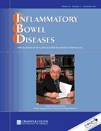Mucosal genome-wide methylation changes in inflammatory bowel disease†
Supported by the Helen Lawson award from the British Medical Association, and the NIHR Biomedical Research Centre award to Addenbrooke's Hospital / University of Cambridge School of Clinical Medicine.
Abstract
Background:
DNA methylation constitutes a key epigenetic mechanism by which cells regulate gene transcription. Among its roles are the dynamic regulation of gene expression, for example, as part of an evolving immune response, and cell differentiation in specialized tissues. Here our aim was to study the impact of differences in methylation patterns in the intestine with regard to inflammatory bowel disease (IBD) susceptibility and activity.
Methods:
Having extracted DNA from rectal biopsies, we conducted genome-wide methylation profiling using the HumanMethylation27 BeadChip microarray to identify genes showing evidence of differential methylation between cases of ulcerative colitis and Crohn's disease and healthy controls. Selected methylation signals were validated in an independent replication panel by pyrosequencing. Correlation with gene expression was sought by quantitative real-time polymerase chain reaction (RT-PCR).
Results:
Multiple genes showed significant evidence of differential methylation, several appearing in both ulcerative colitis and Crohn's disease comparisons including THRAP2, FANCC, GBGT1, DOK2, TNFSF4, TNFSF12, and FUT7. Many more than expected by chance overlapped with genes previously implicated as playing a role in IBD susceptibility in genome-wide association scans, including CARD9, ICAM3, and IL8RB (P < 0.001). Correlation between methylation and gene expression was identified for selected transcripts.
Conclusions:
Consistent differences in DNA methylation between IBD cases and controls at regulatory sites within these genes suggest that their altered transcription contributes to IBD pathogenesis. (Inflamm Bowel Dis 2012;)




